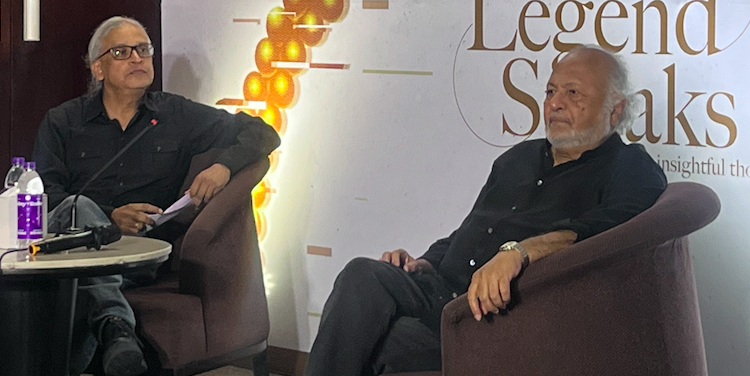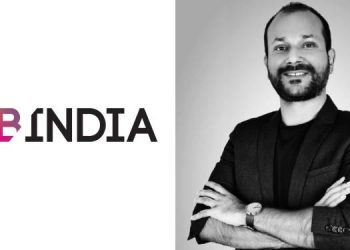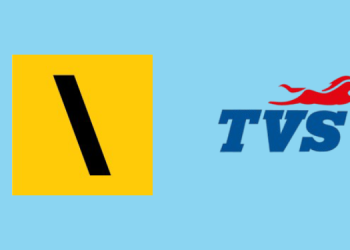The 17th edition of the Pepper Awards were held in Kochi recently. While industry participants were felicitated and celebrated for their work, there was a bigger treat in store – to hear advertising veteran Mohammed Khan.
Khan started not one, but three advertising agencies and had a wealth of anecdotes and experiences to share. “Creative cannot work in isolation. But you should understand that whoever you are and whatever you do, the question you need to ask yourself is what can I do which will help to make advertising ideas stronger, better, and more impactful,” said Khan in a conversation with Raj Nair, former CEO & Chief Creative Officer, Madison BMB.
In his introductory speech, Nair said, “I’ve had the absolute pleasure of working with Mohammed, and he taught us very well which helped me in my career. I owe a great deal to the grounding I received at Enterprise agency under Mohammed.”
Speaking about the early days of advertising in India, and his journey, Khan had interesting views to share.
“I started my ad career not in India, but in London in the 1960s. It was the training and exposure in that place which really made me who I am today. It is also the reason why I seem like an oddball in the Indian ad world. The 60s were an incredible time to be in London, it was called the swinging sixties. There was so much going on, the whole world was going upside down because a huge amount of social changes were happening, young people were challenging every single norm.”
“As far as the advertising was concerned, the 60s were called the golden age of advertising. I happened to land there and was fortunate enough to work with the right people, with the right idea, at the right place, at the right time. In those days, it was very difficult to become a copywriter in London, no one joins as a copywriter, one has to get into an agency and then work your way up. I managed to get into a job in the media department of Garland Compton.”
Reminiscing his first day on the job, Khan said, “On the first day at the agency, the media director called and gave a brief about what to expect from the job. He said, our job is to support the people on the 6th floor – that’s the creative guys. What I have found in India, is what media guys think is that advertising is about media; the research and strategy thinks that it’s all about their respective categories. But at the end, it is not strategy that’s coming out of the funnel – it is some amazing ads whether it is a print ad or commercial.”
Khan underlined that this understanding is critical. He believes if one doesn’t understand that, they do not have the basics right.
“I am regarded as anti-research and anti-strategy. (But) creative people are not magicians who can pull ideas just like that, but that’s not how the business works, you need research, information, and facts from which the creative work happens. Creative cannot work in isolation. But you should understand that whoever you are and whatever you do, the question you need to ask yourself is what can I do which will help to make advertising ideas stronger, better, and more impactful,” he added.
“I came from the golden age of advertising to the stone age of advertising,” he said on his return to India from London. “I must tell why it is the stone age, the biggest obstacle is the attitude. Today, we have a wonderful thing called ‘jugaad’, Indians are so brilliant in finding solutions. In 1971, when I came back from London, the scenario was not like this. They had a negative attitude towards certain things to be done,” he said.
“The first lessons you learn in advertising are the most important lessons. Once you sort that out, then your way is clear,” he added.
Recalling an ad that Khan has done for the 10th anniversary of Enterprise, he said, “I decided to do the ad because I was the writer, client, art director, almost everything of the organisation. It was a spiritual experience for me, it was 400-500 words copy. 20 years ago, I started Rediffusion. 15 years ago, I started Contract, 10 years ago, I started Enterprise – I finally got it right. There were no phones or WhatsApp those days, I got over 700 letters from people who were not in advertising. I received a letter from a housewife in central India which said, ‘I saw the ad and want to get into advertising’. This is the power of advertising.”
Khan said, “I had the fortune to learn the business in the right way and I brought fresh thinking to this country. People say that Enterprise is closed down, but my biggest contribution to advertising is Enterprise. When I was working at Enterprise, there was only one Enterprise, now there are five hundred of them because each person who worked in the agency is doing an enterprise. Enterprise is an idea and not a name on the door. Enterprise is a team of many people which made huge contribution to the ad world.”

















